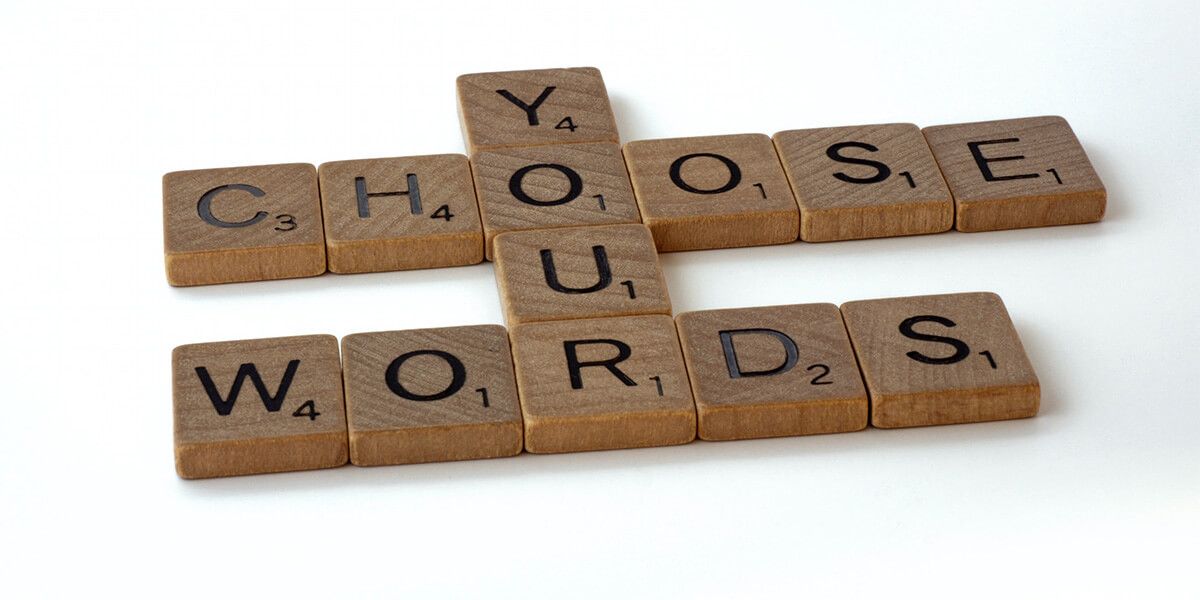
Words and climate change
Speaking, writing and reading play an essential role in our everyday lives. Wherever language is the means of expression and communication, it has the potential to shape the functioning of a society. It represents our personal, professional, political interactions and is culturally determined. Words and phrases can, both knowingly and unknowingly, have an influence on how we and others perceive the world.
WHAT we say matters
Words are powerful. On the one hand, they can make us happy. They can make us curious. They can lift us up and make us move mountains. They can be magical, healing, soothing. On the other hand, they can make us angry, sad, they can hurt. They can be destructive. They can bring out the worst in us.
Words create narratives, bring the truth to the surface, hide facts. A single word can bring us together or tear us apart. Words have an impact on us and on others.
HOW we say it matters
It is up to us how we convey our messages. Sometimes a touch of humour, respectful yet light-hearted, can help connect better with others and alleviate a situation. Then, there may be moments where it is necessary to be quick, deliver facts and get straight to the point. If we are not careful and choose a cynical undertone, we risk creating a toxic atmosphere which is detrimental to all those involved.
However, not only the words we use, but also the way we look at others and our gestures, play an important role. No matter what we do or what we say, “one cannot not communicate”, as Paul Watzlawick always used to say. (1)
WHEN we say it matters
In the heat of an argument or a crisis, we often use a harsh tone or an inappropriate expression. I assume we all do this from time to time. Even if we later say “Oh, I did not mean it” or “I was just kidding”, it has been said and the damage has been done. If we are lucky, we become aware of it and can apologise. But sometimes there are situations where we might have crossed a line, where it is simply too late to take something back.
The virtue of speaking well and effectively also includes the capacity to stay silent when a situation demands it. “Silence is golden” proves a useful proverb. When our temper has calmed down, we can still pick up where we left off. It is easier to add something than to take it back.
Choosing our words carefully results in climate change
Trying to walk in the shoes of others, trying to understand cultural norms, opening up to diversity, cultivating tolerance is an attitude. An attitude we can choose every day, we all can learn and even improve. Leading by example is important. Others, especially children, imitate what they see, hear, feel and experience. We all contribute a little to how others behave and develop.
Choosing our words carefully is a maxim WE ALL BENEFIT FROM. It can ignite a positive chain reaction and break unhealthy patterns. Any new habit requires practice and time to become effective and we must not be too strict with ourselves. Even if our old habits sometimes still shine through, I like to remember Marshall B. Rosenberg who once said: “If something is worth doing, it is worth doing even if we are not so good at it”. (2)
References:
(1) http://www.wanterfall.com/Communication-Watzlawick%27s-Axioms.htm#111
(2) Marshall B. Rosenberg: Gewaltfreie Kommunikation – Eine Sprache des Lebens, Jungfermann Verlag (ISBN 978-3-95571-572-4)